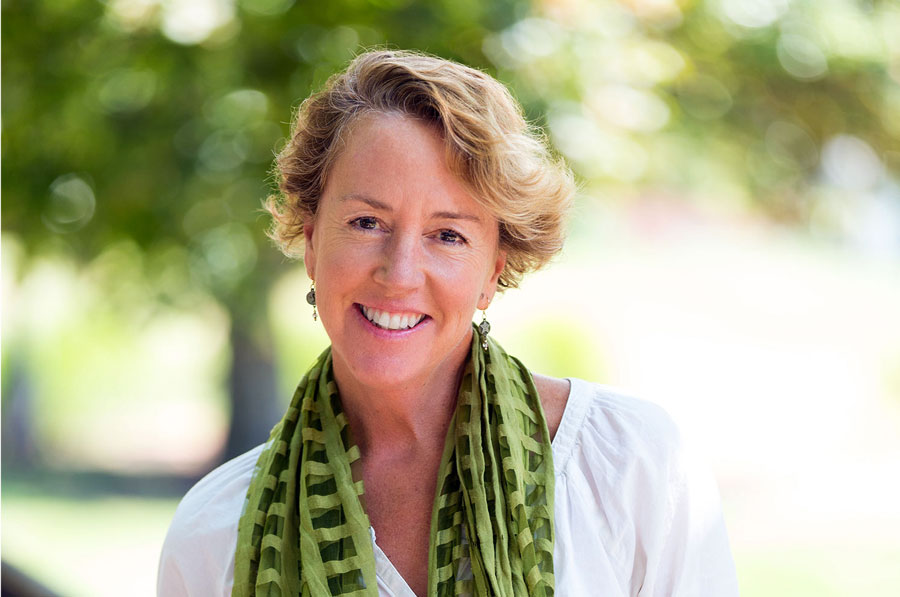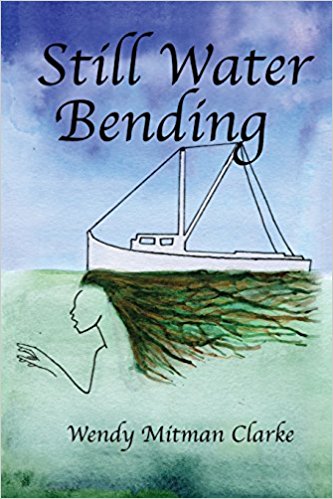There are only a few names that I stumble onto through both sailing and writing, and I’ve enjoyed Wendy Mitman Clarke’s journalism for several decades. But it wasn’t until I re-read her only novel, Still Water Bending, and then tried to nail down what books I like, that I decided to reach out for an interview.
Though I consider Wendy a fellow author of #coastalfiction, she doesn’t think there’s a second novel in her future (too bad) and prefers to spend her writing time on poetry and journaling… but I’ll let her take it from here.
Warning: This is a longer post than usual, but worth it!

What inspired Still Water Bending?
I grew up sailing on the Chesapeake, and even when I moved back to Annapolis in 1989, I could see the changes underway. Towns like Annapolis, which still had an active waterfront seafood plant, where watermen could bring their catch and people could buy it fresh off the boat, were already losing that working waterfront to residential and non-maritime commercial interests. Within a generation, communities were shifting from being working waterfronts to recreational waterfronts. This comes with a cultural price. So that is part of what I wanted to talk about in the book.
I was inspired initially by meeting a waterman named Walter Coles Burroughs who lived in Mathews County, Virginia. I interviewed him for a story I was writing and spent the day on the water with him, pound-netting, and then we came in and he wanted me to stay and visit a while longer, and he started telling me about his late wife and how much he missed her. He just seemed so sad, I couldn’t stop thinking about him.
The story I wrote won several awards and was published in River Teeth, a journal of creative nonfiction. I began thinking about building a character inspired by Walter Coles, who could be emblematic of this changing waterfront culture. I think of it as my love letter to the Bay. There’s a lot of imagery of the natural beauty and wonder that I have always felt when I’m on the Bay.
And, I have always wanted to write a novel.
Why do you find the coast such an inspiring topic/theme?
Because it’s eternally interesting and eternally unknowable and mysterious. It’s a weird thing; when I am sailing, or even hanging out on a beach, I rarely read a book or listen to a podcast. I am nearly always looking out over the water. For hours. I have thought about why this is, and I think it’s because there’s so much there I can’t see and I can’t know, but I know it’s there and so I wonder about it all, and then something happens—a whale blows, or a seal pops up, or a dolphin pod comes to play, or a flying fish comes spearing out of a wave, or the water just moves in a funny way suddenly—and then I think, what happens when I’m not looking? Maybe it’s trying to know the answer to that question that makes it so compelling.
How has journalism helped you write fiction?
I’m already hard-wired to pay attention to detail and to describe those details with strong visual imagery. It was also really helpful in Still Water Bending for the boatbuilding scenes, since I spent many weekends with George Butler, a master builder in Reedville, Virginia, watching him build a traditional skiff and asking him a million questions. Those sections of the book deeply drew on the skills I need as a journalist—knowing how to interview someone, paying attention to details no matter how minute, clearly conveying a scene.
As a columnist for Soundings, Chesapeake Bay Magazine, and Cruising World, I found a voice through writing those short essays that did come into play in writing the novel. Much of what I saw and learned and felt as a writer for those publications, and being able to write first-person, observational pieces, came into play in the writing of the novel.
What did you have to do differently?
When the time came to write the novel, it was immediately clear to me that I needed entirely different writing muscles for it (if it were easy, everyone would do it, right?!). I twice attended the Bread Loaf Writers Conference studying fiction. I met monthly with a group of three other writers and could not have finished the novel without their insights and support.
The main things I had to learn writing fiction, which I never have to do as a journalist, were maintaining consistent voice in each character, maintaining consistent point of view, learning to understand what each character would see, what details would they be hearing, seeing, feeling, because obviously we all see, hear, feel something different. And then writing those details for those characters.
I’m also a published poet, and now I’m the senior editor of Good Old Boat magazine. Which gets to the meat of writing as a skill across multiple genres, and how to learn how to use different writing muscles.
Biggest change in 30-plus years of publishing/writing?
The shift from print to digital. The evolution from in-depth stories as the norm to short-form, social media-driven content, and the rise of social content and videography as a story-telling medium. Publications that in the past were willing to pay a writer pretty well for the hard-earned skill of good reporting and writing can opt for someone willing to do it for free, just to get it out there. Being a journalist isn’t enough anymore; you need to provide great images and preferably video and social content as well. It can be a lot to juggle, and it can be difficult to do everything really well.
Writing really good, effective social media content is an entirely different set of writing skills and not as easy as it looks. Most editors understand that expecting a writer to multitask on assignment means that something will probably suffer in quality, and if they had their druthers, they’d always send a photographer/videographer along so that the writer can focus on the reporting and the writing. But a lot of times, the publishers don’t see it that way, and the purse strings don’t allow it. On the plus side, digital photography has made it so much easier to shoot images and edit them on your laptop that taking photos now is really fun. And I find videography a really wonderful way to think about telling a story, and a challenging skill to master well.
You call yourself a generalist, but almost all of your topics are waterfront-related. Is that a conscious choice?
This is an interesting question and one I mull over quite a lot. My first two jobs were straight-on journalism. Even there, I tended toward waterfront stories whenever I could get them. But I was really worried that I would become a niche writer, so I have worked hard over my whole career to always keep a hand in publications outside of the maritime world.
Writing about environmental issues is really important to me, but I almost always head for the water, even in that. It’s just so deeply embedded in who I am that it will always be where I feel most curious and most inspired. And now, with climate change, it is one of the most important topics we have to talk about. People need to learn and understand that without a clean ocean, without its complex ecosystems, we won’t have a planet. It’s that simple.
If you could spend your writing time on anything, what would it be?
I would travel as much as possible and spend hours journaling about everything I am seeing, hearing, smelling, doing. When we were sailing full-time on Osprey, I would keep a personal log. Sometimes it was a place to vent, but mostly it was a place to record the details of that life. I loved having something new to inspire me every day and the time to write about it.
I also would like to spend more of my writing time on poetry.
How about reading time?
Polar exploration fascinates me, so I like reading anything related to that. I also tend to read non-fiction maritime books, and weather-related books. I am a major weather nut. But the sad thing is that I don’t get nearly as much time to read as I would like right now.

Thanks for sharing your thoughts, Wendy! For more information and to order Still Water Bending, visit Wendy’s website.
Read Author Conversation #1: Barbara Rogan
Got a #coastalfiction author you’d like me to interview? Add a comment below, or send me an email. Thanks!